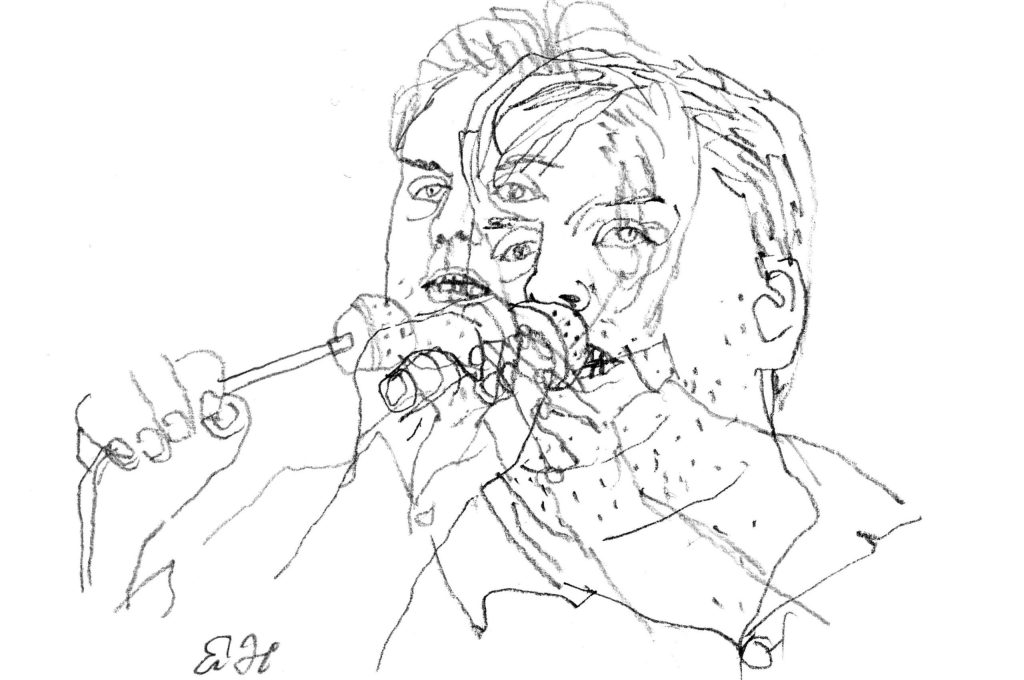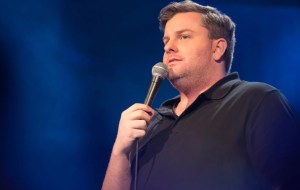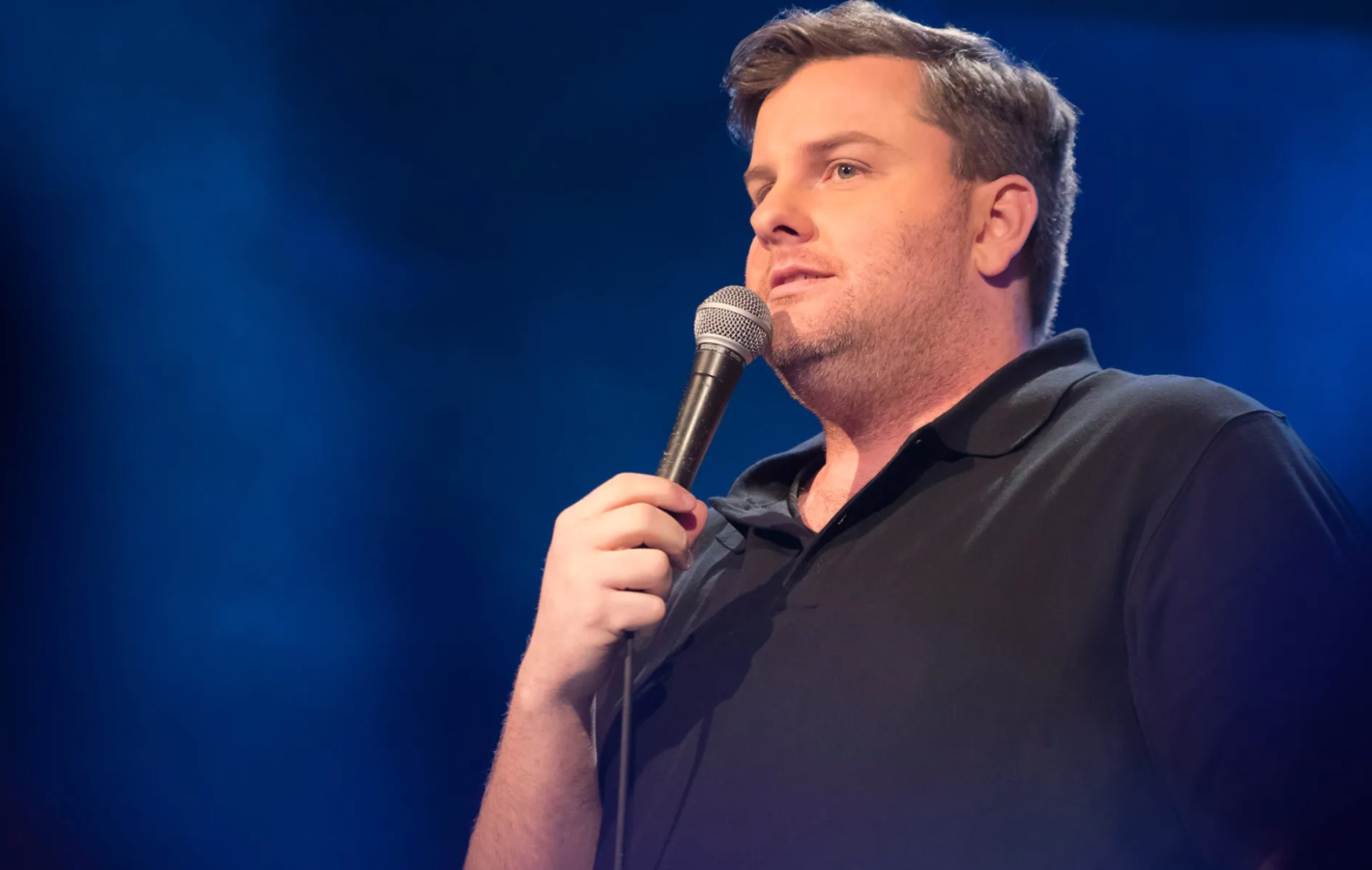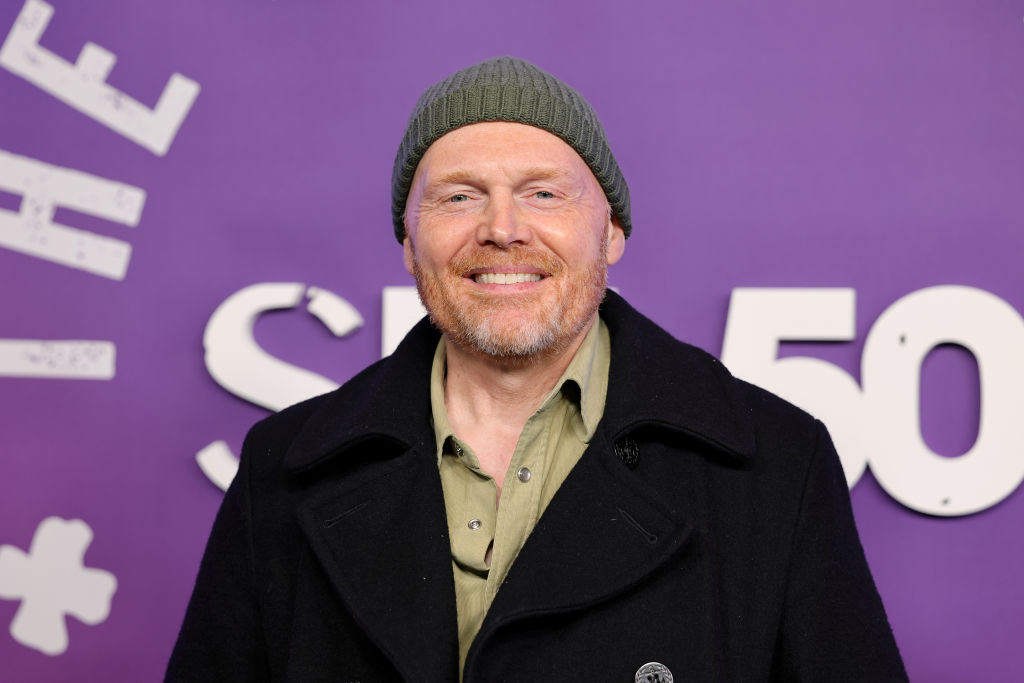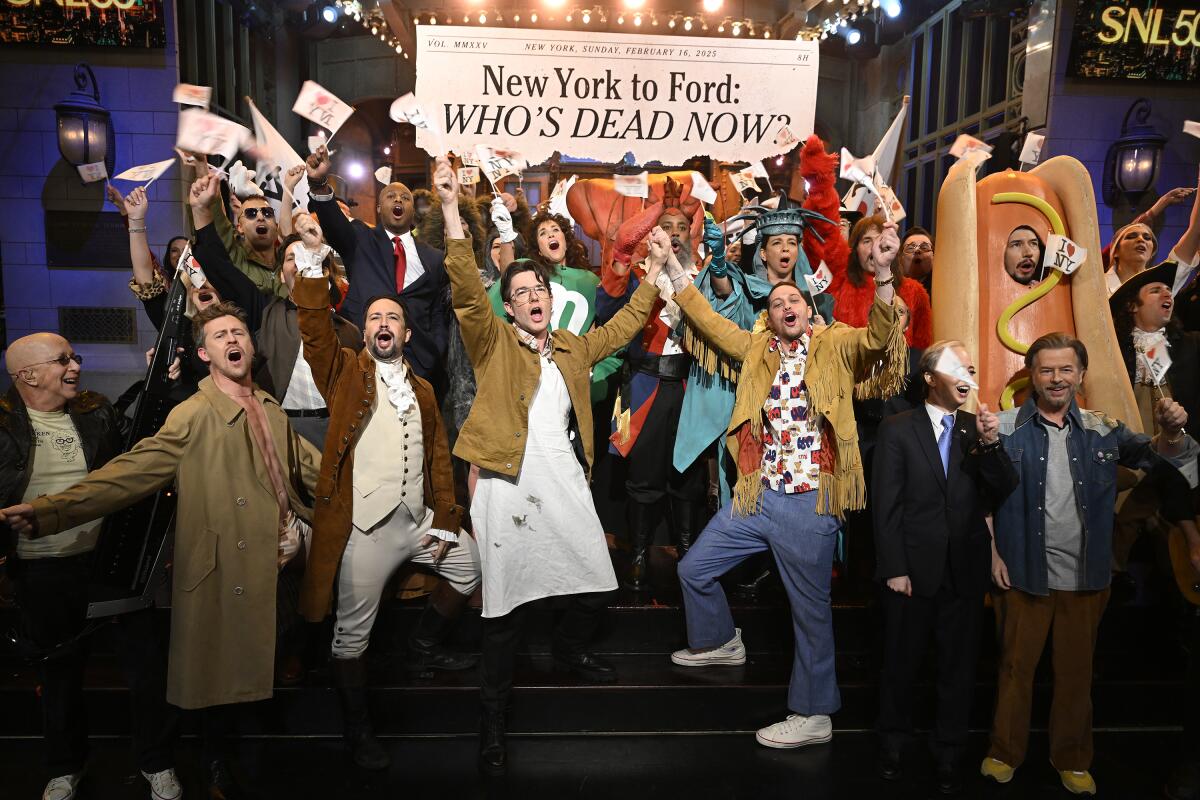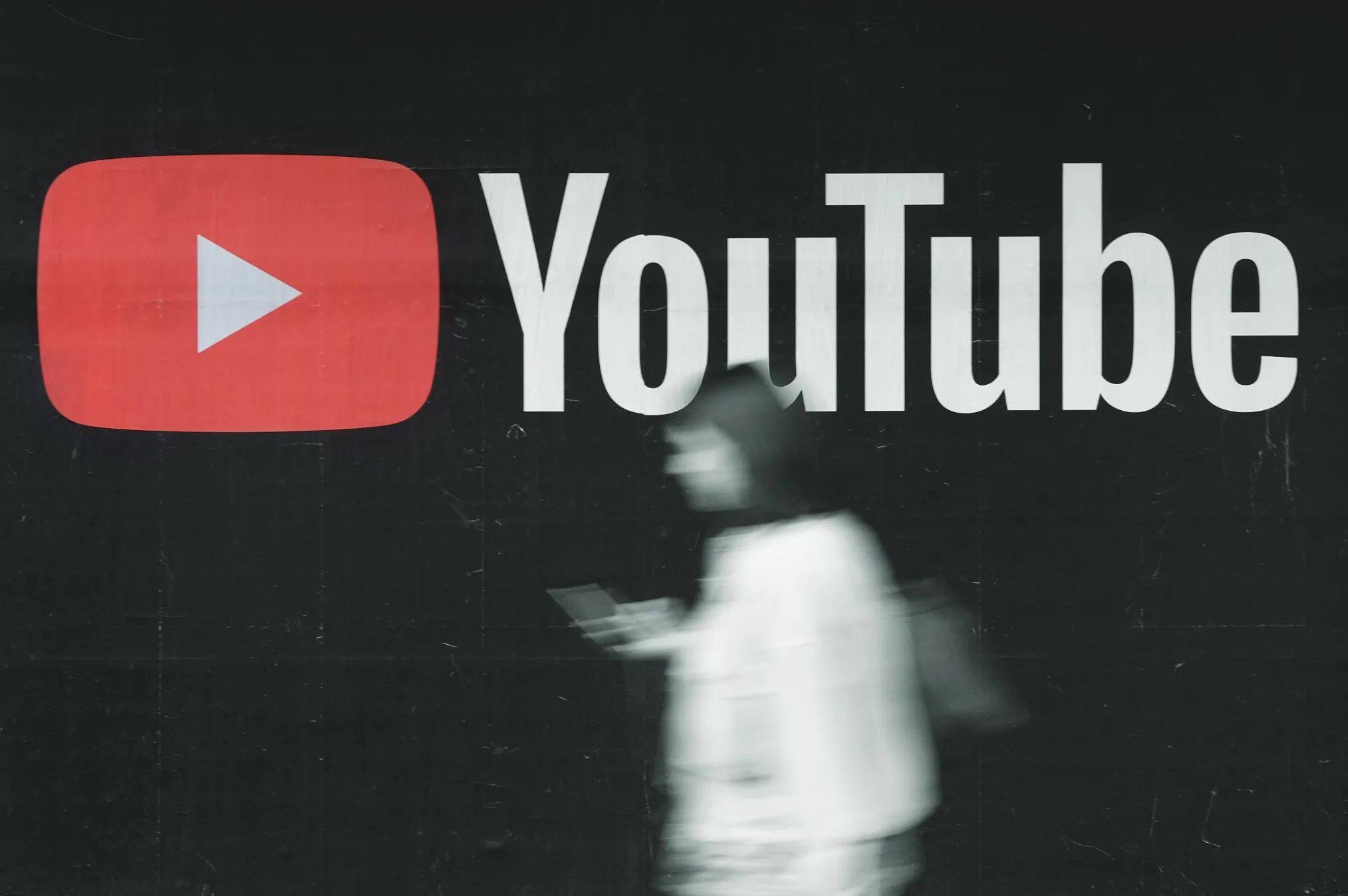‘I look at my father and it’s like he’s been lobotomized, but maybe he’s figured something out,’ 36-year-old comedian Tim Dillon tells me. ‘I may find out it’s the only way to survive.’ Dillon is increasingly recognized as the heir apparent to countercultural comedy greats such as Bill Hicks and George Carlin. It wasn’t so long ago he was selling subprime mortgages and photocopiers, and working as a New York tour bus guide. A recovering addict (11 years clean), his life changed in 2019 when podcast king Joe Rogan spotted his defense of canceled comedian Louis CK on Facebook and invited him to be a guest on The Joe Rogan Experience, a podcast whose global audience is measured in the hundreds of millions.
‘My entire career shifted at that moment, because of his generosity,’ Dillon says. ‘He gave me that platform and he kept having me on.’ Today, Dillon’s own podcast, The Tim Dillon Show, for which he says he doesn’t prepare — ‘it’s just me talking to my friend twice a week’ — generates more than $100,000 a month through Patreon subscriptions, and his audience is growing rapidly. Candace Owens and Jordan Peterson have made guest appearances. Unsurprisingly for a man who until recently was living hand-to-mouth, he is an ardent supporter of podcasts. He considers them relevant in a way mainstream media can no longer hope to be.
‘Donald Trump won an election in no small part because he was a wild, unpredictable figure. That should have taught the mainstream media that people are much less impressed by the stilted interviews you see on The Tonight Show, where people are talking for three minutes about a vacation they went on, and all the jokes are preplanned and it’s meant to feel spontaneous, but it feels the exact opposite — and everything is sandwiched between commercials for products you don’t use.’ The idea of moving into the mainstream — to host, say, a family-friendly chat show, à la Jimmy Kimmel or James Corden — fills him with horror. ‘I couldn’t think of a worse thing to do. What could be less interesting than an entire family consuming the same entertainment? How grotesque. How grotesque to make something that appeals to a nine-year old and someone who’s 75.’
Devotees of Dillon’s podcast could be forgiven for suspecting a transition to primetime would not last very long anyway. He rages (usually by making very specific allegations) against prominent members of political and social elites. He mercilessly mocks the likes of Meghan McCain or the lesbian couple (‘desert dykes’) who last year objected to the state in which he left their Joshua Tree Airbnb rental. It seems a miracle nobody has tried very hard to have him canceled, or sued him into oblivion.
‘Libel suits are very difficult to win,’ he says, unconvincingly. ‘As far as canceling me, there’s nothing to cancel, because I just entertain my fans. I’m not forcing myself down your throat; that’s why I don’t want to be on mainstream TV. If you put me on CBS and the audience flips out, or someone says “This guy’s offensive”, then CBS has got to decide if I represent their core values. I only have to entertain my fans, thanks to the technology we use.’
The worldview from which Dillon derives much of his comedy is apocalyptic: civilization on the brink, Rome burning while its medicated citizenry stares obliviously at smartphones and tunes in to The Bachelor.
‘We are living in a ridiculous society. It’s a society that’s absurd. I don’t know how it gets more absurd, but I’m sure it will. It seems to be peak insanity to me. In America we have people on the streets fighting each other. We have people in Viking helmets charging into the Capitol building. We had a woman who threatened her mother on Dr Phil who is now a bona-fide celebrity.
‘We have children on TikTok dancing in Los Angeles mansions, who are worth a bazillion dollars, being asked their opinions on important political issues. And people are listening to them and if they have a wrong opinion, they are canceling them. Adults are writing about the things 16-year-olds do, and trying to work out if they are good or bad. It’s a ridiculous society.
‘How long it goes on like this, I don’t know. But the seeds have been planted of a somewhat rapid disintegration, and I think you are witnessing it now.’
He points out that the rise of ultramodern phenomena like cryptocurrencies and nonfungible tokens only lends credence to this view:
‘This is where we are. We are all selling bullshit to each other. No one believes you can make it in any traditional sense any longer. People have lost faith not only in leaders, but they’ve lost faith in the entire system.
‘People are trying to go outside the system to earn money…it seems like a money grab. It seems at the end everyone is looting. Because everyone is just taking whatever is left. It doesn’t feel like there’s any long-term faith in the system to make peoples’ lives any better.’
Dillon doesn’t look far for the people he believes are responsible for the state of the planet. He puts the blame for almost everything on the boomers, a generation he describes as ‘the teenagers of the world’. Specifically, he takes issue with the advice — ‘Follow your dreams’ and ‘Do what you love’ — given to his generation by their parents:
‘These are maybe the worst things that have ever been told to anyone. They’re catchphrases. They’re things on the wall of a guidance counselor. They’re bumper-sticker slogans. They’re not anything that would in any way approach a rational course of action for most people’s lives.
‘We were never told what would happen if that didn’t work out. There was no “but”. We were never prepared for sacrifice, or the reality of what that means. It was just bad advice. It was bad because it was given by boomers who are deeply selfish people, the destroyers of the Earth.
‘They gave us very bad advice because they didn’t want to speak to us — they wanted to drop us off at soccer, they wanted to go and drink wine on the patio.’
Isn’t he himself, though — as the recent trajectory of his career attests — not living proof that ‘follow your dreams’ is excellent advice?
‘I’m 36 years old and have started to succeed in the last year of my life,’ he says. ‘The best years of my life were completely wasted. So, start the conversation there. Don’t say “Follow your dreams”. Say: “For how long are you prepared to be broke?” First question. “Are you prepared to be broke for the majority of your adult life?”’
Although he is now well on the way to becoming one himself, Dillon is deeply interested in wealthy people, who he believes are cut differently from everyone else. He quotes F. Scott Fitzgerald’s line about the very rich being ‘soft where we are hard, and cynical where we are trustful’.
He says: ‘It’s real money I’m interested in. I’m not interested in midrange stuff. I’m interested in blue-blood aristocracy — families that have been rich for hundreds of years. They’ve always interested me… the idea of dynasty is fascinating.’ He delights in Illuminati-style conspiracy theories, particularly ones relating to the sinister manner in which throughout history the super-rich — ‘people who operate outside the democratic process’ — have closed ranks to protect one another:
‘Someone’s protecting Prince Andrew,’ Dillon tells me. ‘I wouldn’t say it’s the Illuminati, but someone’s protecting Bill Clinton. I mean, anybody that had taken 20-plus flights on the plane of a human trafficker [Jeffrey Epstein] should be questioned, which I don’t believe he has been, by the FBI. Prince Andrew should be questioned, too.
‘If the rule of law is to mean anything, these people should be held to account for some very dubious behavior. Someone is protecting them, or someone is preventing that from happening. I don’t know who it is, but I don’t think it is an irrational or crazy belief that these people should be called to account for associating with someone who has destroyed the lives of countless women and children.’
Dillon does not — it goes without saying — believe Epstein committed suicide: ‘The guy was killed. I think it’s quite easy to keep someone alive. I think we’ve proven that. I think it’s very interesting that he was killed. I can’t for the life of me understand people who think that’s some kind of mere coincidence. I mean, this guy had some of the most damaging secrets on some of the most powerful people on Earth, and he ends up dying. To me, someone is preventing light being shed on this.’
Until he discovered cocaine and alcohol at 13 — ‘I decided I would learn more about life in crack houses than school’ — Dillon was categorized as a gifted child. At one point, he was buying his coke from the same dealer as one of his teachers. An unsuccessful child actor (he once appeared on Sesame Street), he describes his time as an addict — ‘12 years, I put a good chunk of life into that’ — as a period of great sorrow and loneliness. To this day, however, he doesn’t regret stealing from his family to finance his habit: ‘If you met my family you would know how much these people deserve to be stolen from. It’s really one of the only things I’m not sorry about. When I did my inventory, I went to AA and the 12-Step Program, and they said “You’ve got to make amends to your family.” I did so begrudgingly. I was taking money out of their pockets that they were most likely going to spend on drugs.’ Today, Dillon is on course to become the leading comedic voice of his generation — a destiny he is apparently moving toward clear-eyed and unencum- bered by the past. He’s aware, however, that his is an industry littered with sad stories.
‘It’s all a cautionary tale,’ he says. ‘You know what’s the best cautionary tale? The people that have succeeded and still have guns in their mouth. The cautionary tales never stop. In the beginning, it’s people that haven’t succeeded, that have been at the party too long. And then the cautionary tales become people who have succeeded beyond their wildest imagination.’ As for the future, Dillon says he is focused on growing his podcast audience and collaborating with likeminded people to generate laughter. ‘Funny is my first love,’ he says. ‘I don’t really care how I’m being funny. As long as people are laughing, I’ve figured it out.’
This article was originally published in The Spectator’s June 2021 World edition.



